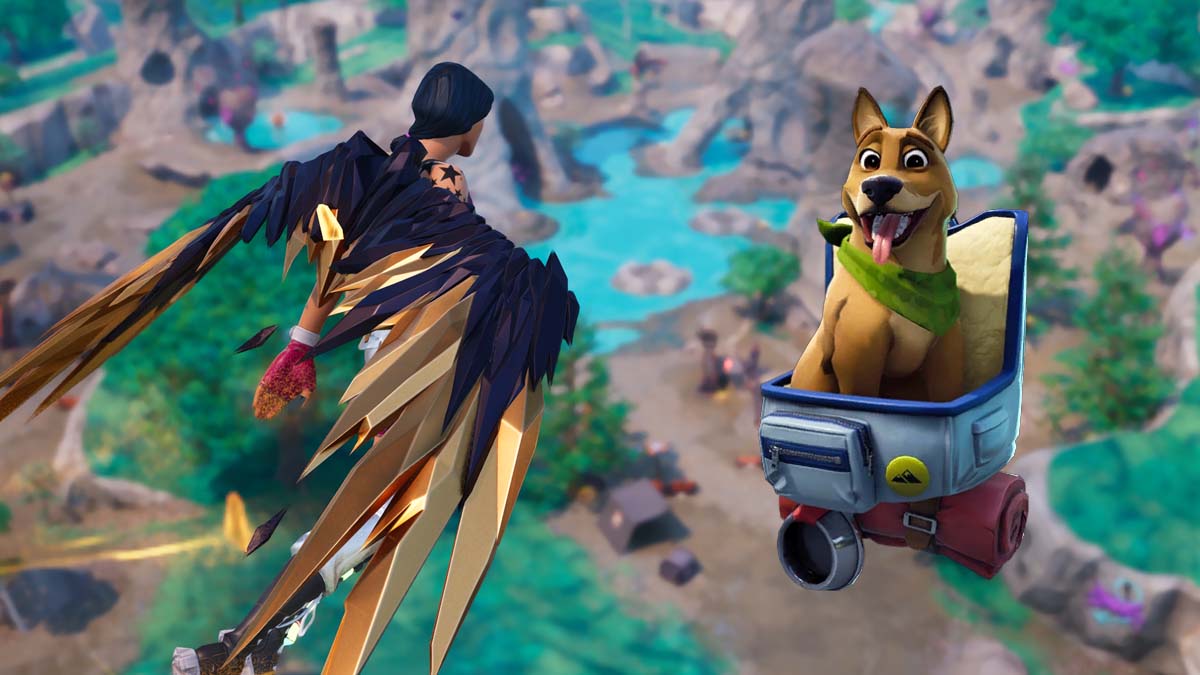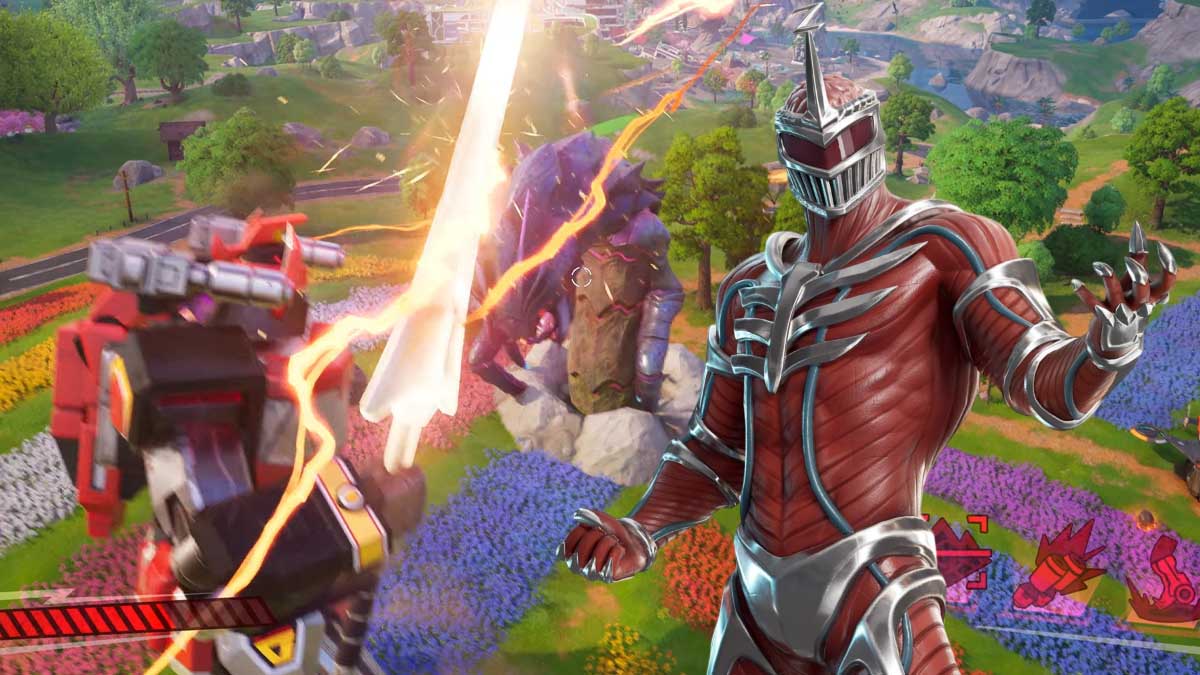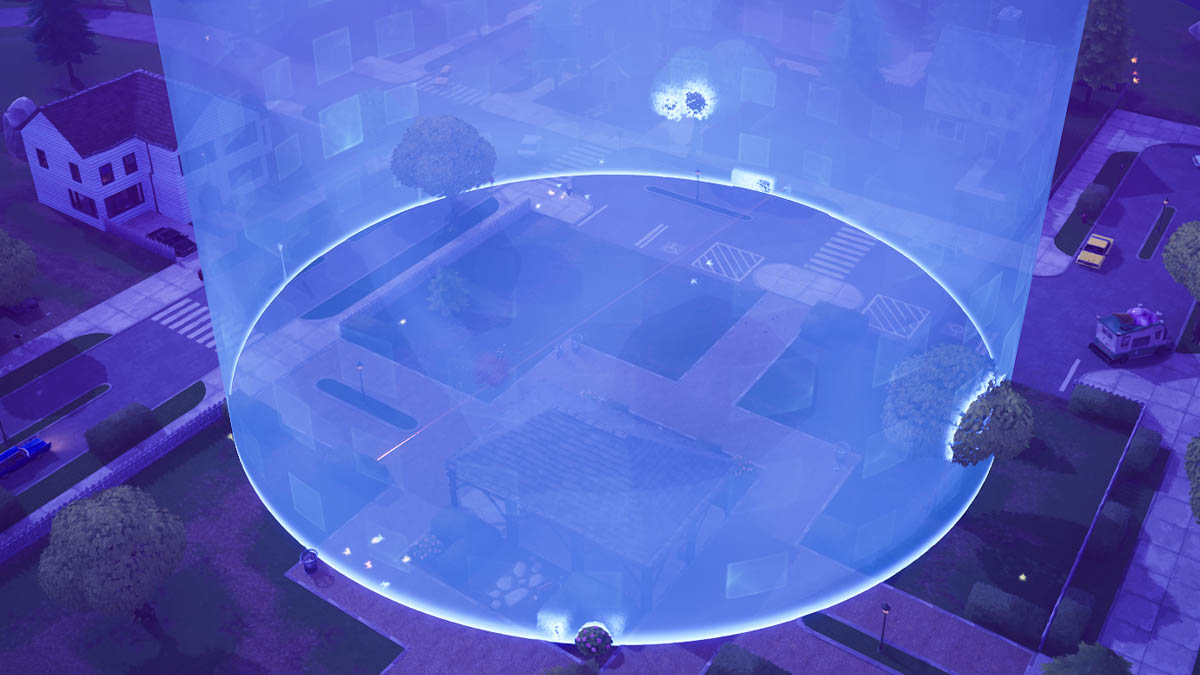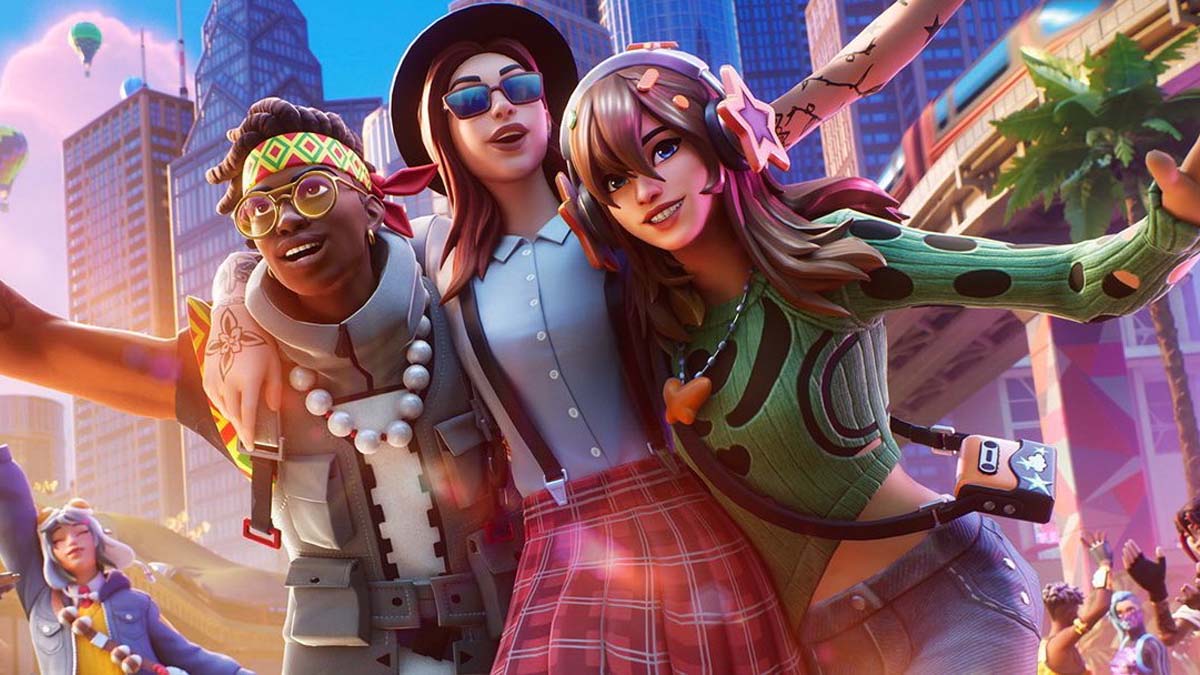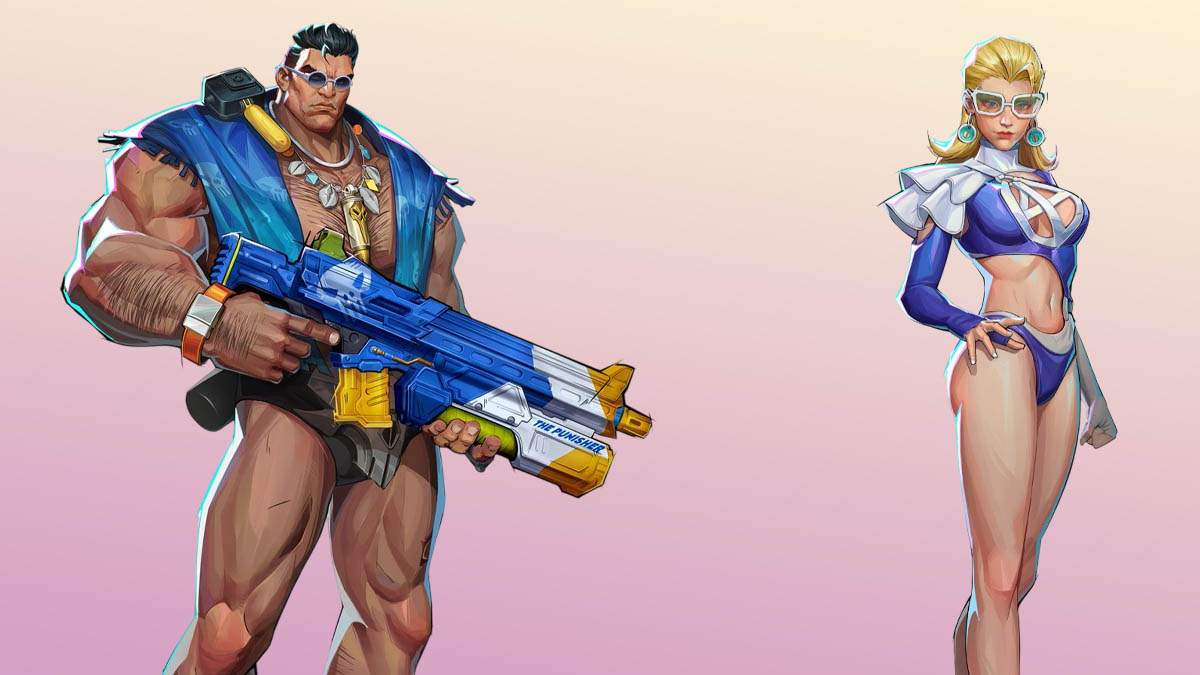You can trust VideoGamer. Our team of gaming experts spend hours testing and reviewing the latest games, to ensure you're reading the most comprehensive guide possible. Rest assured, all imagery and advice is unique and original. Check out how we test and review games here
With “next-gen” consoles looking more like PCs with every passing day, and an apparent doom and gloom surrounding the state of hardcore PC gaming, at least in the west, you’d think that Alienware, makers of high end gaming PCs, would be up hardware creek without a paddle. Not so, says associate director of product marketing Bryan A. de Zayas. Instead, he explains in this interview with VideoGamer.com, the PC will always provide a better gaming experience than consoles ever will. Not convinced? Read on.
VideoGamer.com: How’s business?
Bryan A. de Zayas: Business is actually doing really good. The economy isn’t the best that it could be obviously but the great thing about being in the gaming industry is that everybody always wants to be entertained. If you’re going to be staying home more than you’re going out, then you’ll want to be entertained.
VideoGamer.com: Alienware’s in an interesting position then, in that you specialise in high-end gaming PCs that cost quite a bit, but the economic downturn isn’t affecting you.
BdZ: Alienware is all about building that high performance gaming PC. It’s all about how much power can be crammed into a box, whether it’s a notebook or a desktop. As far as how the economy is affecting us, we’re actually doing very well. We’re not having any major issues. Without getting into too many details about revenue, we’re not allowed to talk too much about that.
VideoGamer.com: We hear a lot of doom and gloom about PC gaming. Given that business is doing well that would suggest there’s still a demand for high-end PC gaming rigs. How do you feel about the “PC gaming is dead” school of thought?
BdZ: That’s been around probably since Alienware began 12 years ago, and we’re still around. It’s one of those stories that people, I don’t know if they like to hear it, but it’s something that definitely gets people intrigued and involved with gaming. I can tell you that PC gaming is as strong as it’s ever been as far as worldwide PC sales for gaming specifics. Now the trick is, when finding information from publishers, developers, or even from the hardware guys like us, what type of gamer are they targeting? Are they targeting that gamer that wants that top experience that they’re not going to compromise on? Graphics, having lag and reduced frame rate. If you’re talking about them, those types of customers are going to always want a PC experience simply because on a console side you’re maxed out, what you have in the box is all you’re going to get. On the PC side you can upgrade later on. It’s really about the capabilities of what it brings to the PC as a platform, whether it’s for gaming, whatever it’s for. The PC as a gaming platform, being able to do things like connect it to a 50 inch LCD television, and obviously you can do that with a console, I’m not saying you can’t do it, but the graphics experience you’re going to be able to crank out of a PC is going to be far in excess of that of a console.
VideoGamer.com: Say, for example, someone wants to get into video games. Why should they choose an Alienware PC that costs maybe in excess of £1000 over an Xbox 360 or PS3 which is significantly cheaper? When you look at the graphics these consoles are able to produce they’re impressive.
BdZ: Absolutely. Really the biggest thing is that one) the game experience but then once you see past the game experience, if you can do gaming you can do anything on a computer. It’s really as simple as that. It’s a matter of, if you’re going to be able to play games like the latest Call of Duty game, or, right now I’m playing Dawn of War II and the game’s incredible, if you’re able to play that with your settings cranked all the way up, you’re going to breeze through pretty much anything else, whether it’s checking email, stuff like that, that’s just the basic kind of functions. Another thing you’ll be able to do is you’re going to be able to store all of your media, almost an infinite amount of media on a gaming PC desktop. You can put in about six hard drives today on a desktop chassis. You add-on external hard drives if you need to, for all of your movies, all of your music, all of your games obviously. You’re talking about a tremendous amount of storage capacity for all of your media. So it’s more than just a gaming PC even though somebody may primarily be using it for that. It’s really the entire home entertainment experience. I think that gets lost a lot of times when people talk about gaming PCs. It’s not just a PC for gaming. A PC is going to do everything you need it to do. It’s about the horsepower that a gaming PC brings to it and the speed at which it can do all of the things.
VideoGamer.com: The stereotypical image of a PC gamer is someone hunched over their keyboard staring into a PC monitor at 3am. Console gaming is very much a social, living room experience. You’re relaxed on your sofa with your big TV. How is the PC going to fit into that living room experience? I’m not sure how to get my PC working in my living room, or whether I would want to.
/https://oimg.videogamer.com/images/718c/crysis_warhead.jpg)
BdZ: It really depends on the size of the living room. If you’re looking to have a desktop chassis or even notebooks from Alienware have all the power you need. The example you gave of consoles being used a lot in the living room, they have a couple of functions but primarily they’re for the gaming aspect. What a gaming PC or a PC in general is going to provide to you in your living room is far beyond that. So let’s say once you’re done playing your game you want to watch your favourite television show. Well while you’re playing that game in the background your computer, having a built-in high definition television TV tuner, can be recording your television programming just like a DVR. You can plug in your coaxial connections, your satellite, your cable, whatever it may be straight to your notebook or desktop and capture that television programming. You can also in the background connect it to the internet, downloading a movie that you might have from iTunes let’s say. Or you might be getting some music. You can definitely use all of the storage capacity for that. And with the visual experience, using HDMI or the next technology that’s coming out, being able to use those video outputs along with 7.1 or 5.1 surround sound support straight out of the PC, you’re able to bring the entire thing together, your entire entertainment experience onto one platform in the living room. The other great part about having a, let’s say a computer in your living room to drive all of your media, is being able to share it throughout the home. The Xbox 360 for example, I use it at my house with wireless networks so that I can see my content that I’ve recorded on my PC, upstairs in the game room, but storing it all on the PC. People traditionally have cable or a satellite box, at least here in the States, and then you have your console to play your games and then you have your PC to do all your other stuff. You have three pieces of hardware when in reality you only need one and if you really want a console then you have two. You don’t need to have your DVR, you don’t need to have a separate surround sound break up box and things like that.
VideoGamer.com: Consoles are increasingly becoming like static PCs. Do you see a single, unified platform for games becoming a reality?
BdZ: I don’t know how that would end up coming to be. I don’t know how we’d be able to triangulate on a single platform that would exist for three or four years, like the life of a console, before consumers wanted a next generation. PC gamers don’t want to be locked down on what technology they can put in their system. You have to be able to deliver to them the upgradeability or being able to come out with the next generation of graphics cards on a new platform. You can’t wait around three or four years to come out with the next generation of technology for the gamer because you’re not going to satisfy their needs. That’s where we play, in that top end space. You’re right in that consoles are starting to adopt some of the things that the PC platform is doing but obviously the biggest revenue stream for some of these consoles is selling the games and licensing their technology, so to open that up, to make that open source is going to be a difficult decision for some of the console guys to make. Then you might see something there but I don’t foresee any of that coming in the near future at all.
/https://oimg.videogamer.com/images/8afe/2008pcvisionsims3.jpg)
VideoGamer.com: Why did Alienware join the PCGA? What are you hoping to get out of your membership?
BdZ: We joined because we wanted to make sure that PC gaming has a strong message. As we mentioned before, the stories out there have been doom and gloom for PC gaming forever, and we just know that’s not the case. So we want to work with the other industry partners that have a vested interest in PC gaming to make sure that message is counteracted with one cohesive industry message. The other thing is, PC gaming’s great but obviously there are things that are wrong with it. For example piracy, that’s a huge issue. The reason why you hear a lot of software guys out there talking about focusing on console or things like that is because they obviously lose a lot of money because of that. So we really need to figure out how to work together to tackle that issue, but making it a good experience for the consumer. Right now let’s say you install a game, depending on the game you might have 10 different ways that you install the game. Different steps, different processes, different lengths of time in which a game takes to install on a PC. We’re working with the consumers, building the PCs for them, we want to make sure that the PCGA has that kind of insight from the hardcore gamer when they’re building out recommendations to the developers and publishers, and vice versa. We want to know their feedback so we can make a better experience for the gamer as well.
VideoGamer.com: What’s your opinion of Vista in terms of gaming?
BdZ: I’ve been using Vista since it came out. There were absolutely some things buggy about it at first, but it’s actually really smooth. I have a great experience using Vista 64 now. I love that Vista 64 allows you to put more memory in your system and actually use all of that memory. Personally I’ve been using Vista since it came out and right now to me it’s a great OS.
VideoGamer.com: Has it been successful in terms of what it promised to deliver to PC gaming?
BdZ: It’s interesting. It depends on if we’re talking about the higher end. I can speak to the higher end more easily. At the higher end you have consumers that have obviously higher end technology so you’re talking about an installed base that already has four gigs of memory and a customer base that has higher end graphics and higher end CPUs. They love that that hardware and that technology is being pushed. Vista did that. It takes more memory than XP. The great thing about Vista 64 is you get performance gains versus even Vista 32 because you’re using all of the components and all of the different lanes on the memory and things like that. Vista 64 has been very good for the PC gaming experience.
VideoGamer.com: What does Windows 7 mean for PC gaming? What are you hoping it will bring to the table?
BdZ: What I’m hoping, like I hope with any new OS that comes out, is that it’s going to be as simplified a process for gamers as possible. The other thing that I want it to do, is I don’t want it to be system resource intensive. A gamer wants their hardware to be focused on the game that they’re playing, not background applications and things like that. One of the biggest things that happens with companies that are selling gaming PCs is they put a lot of crapware on their system. What it does is it takes away from the gaming experience because in the background you have, I don’t know, Napster or something like that, that there’s been some OEM deal with it and it’s running in the background and it’s trekking online, all you’re doing is you’re taking away from that gaming experience from the hardware. How that translates back to what I hope comes out of Windows 7 is exactly that. Don’t put extra things in there that are going to slow down the system. Make it as streamlined as possible and let the consumer decide what they want on there.
VideoGamer.com: I’ll wrap up by asking you to gaze into your crystal ball and tell me what will be in an Alienware PC five years from now?
/https://oimg.videogamer.com/images/4174/doom_logo.jpg)
BdZ: Wow! I wasn’t prepared for that question! One) it has to be something that is the next level of immersion. What I mean by immersion is you want to feel as if you are physically in the game. I wouldn’t be able to even tell you that a traditional desktop or notebook box would be the same five years from now. Maybe it’s something completely different where you’re physically in a setting rather than looking at a monitor.
VideoGamer.com: You’re talking about virtual reality stuff?
BdZ: Yeah it could be. Five years from now who knows? The progress we’ve made in the previous five years has been primarily to get the imagery and graphics and audio and things like AI to be as good as they can be on a monitor, on a screen. Today you have technologies like 3D technologies that were really pushed heavily back at CES and are starting to gain acceptance in the marketplace now. Five years from now, who the hell knows? Maybe we’re here talking about interacting with holograms. That would be crazy! But that would be fun! I’d love to play a soccer match in a holographic setting!
Alienware is a member of the PC Gaming Alliance, a non-profit organisation that aims to be the authoritative voice of PC gaming world-wide.


